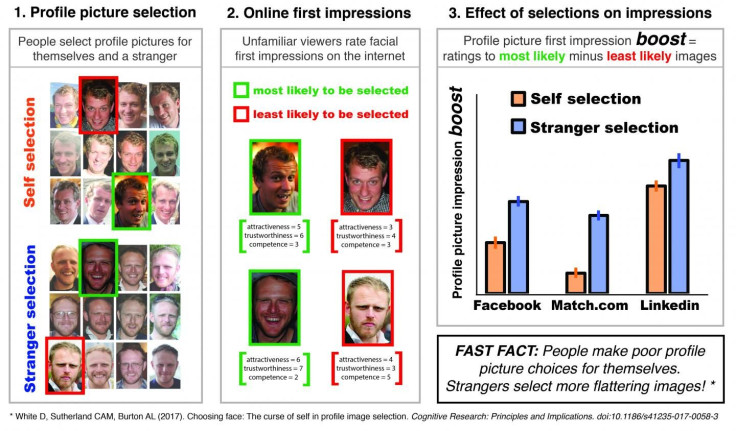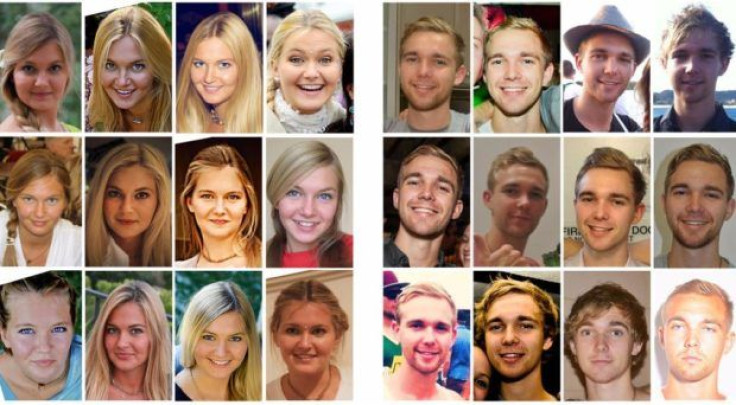How To Choose The Best Profile Picture? Let A Stranger Decide, Research Shows

Most of us now have more than one online social media platform that we frequent, be it Facebook, Twitter, LinkedIn or a plethora of other choices. Different as they may be, all these websites/apps have one thing in common: they all have a place for you to put your best face forward in the form of a profile picture.
The internet is awash with stories and anecdotes of people trying to take and choose that perfect picture that forms the first impression on any visitor to their social media pages. But research published Friday shows we may not be the best judge of our own profile pictures, after all. In fact, the study on behavioral science said letting complete strangers decide our profile pictures could actually yield the best results.
Led by David White from the University of New South Wales in Australia, the authors said in the study: “Contrary to predictions based on people’s general expertise in self-presentation, other-selected images conferred more favorable impressions than self-selected images. We conclude that people make suboptimal choices when selecting their own profile pictures, such that self-perception places important limits on facial first impressions formed by others. These results underscore the dynamic nature of person perception in real-world contexts.”

To reach this conclusion, the researchers collected 12 photographs each from 102 undergraduate students (equal number of men and women), for a total of 1,224 images, all taken from their Facebook accounts. These photographs were then standardized for aspect ratio and size, as can be seen in the example above.
The participants were first asked to rate their own photographs, then of other participants of the same gender who they did not know. And the photographs were then judged on the same scales and criteria by random strangers recruited from the internet. The ratings were of the likelihood of using pictures on profiles of various social media platforms like Facebook, LinkedIn and Match.com. Each of the 12 photographs were also rated for five social impressions — attractiveness, trustworthiness, dominance, competence and confidence.
“Our study shows for the first time that people select more flattering profile images for complete strangers than they do for themselves. This surprising result has clear practical implications. If you want to put your best face forward, get someone else to choose your picture,” White said in a statement.
Titled “Choosing face: The curse of self in profile image selection,” the open-access study appeared in the journal Cognitive Research: Principles and Implications.
According to White, this phenomenon could be caused by how positively we perceive ourselves.
“One explanation could be that we perceive ourselves more positively than others do, in general. This may interfere with our ability to discriminate when trying to select the specific photo that gives the most positive impression,” he said.
© Copyright IBTimes 2024. All rights reserved.











